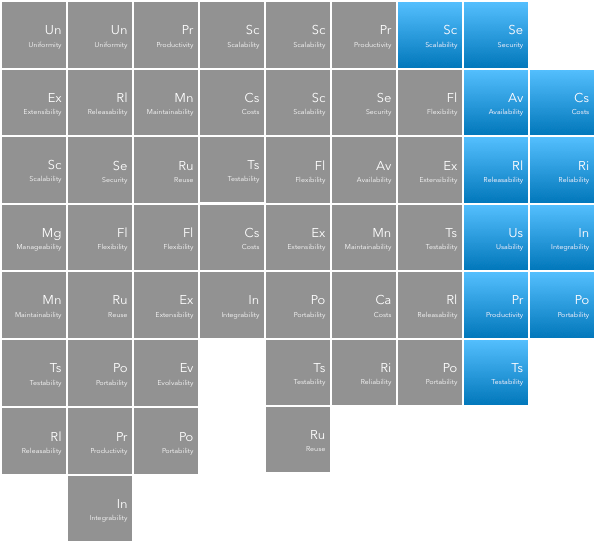
Brand Reputation

Brand Reputation - a type of Perception - provides one of the strongest forms of marketing, and can directly influence Sellability.
At the beginning of this book, I recounted several high-profile events that adversely affected the Brand Reputation of the companies involved. I won't reiterate them in detail again here, but, to provide some context, some of the more egregious have cost millions of dollars, and forced some firms to issue a profit warning. Therefore, we should be wary of any impact upon Brand Reputation.
BRANDING/PR DISASTERS & SALES
Generating new sales is a vital channel to deliver profit. But how do you support sales if you've suffered a branding disaster?
Commiserate with the unfortunate sales and marketing stakeholders who must promote a company suffering from a significant branding failure. Once that event is promulgated, recovery may take years (if ever). Sales will dry up, cash-flow will deteriorate, redundancies and closures could result.
Safeguarding Brand Reputation is (mainly) a proactive undertaking (any reactive gesture suggests the brand has already suffered harm). In the main, the brand helps protect:
- Shareholders, owners, and investors; i.e. the people who have chosen to invest their money into the business.
- Staff; the people who have chosen to invest their time and expertise to operate the business, and may suffer hardship from reputational damage.
- Clients and customers; the people who use your products/services to operate their own business (e.g. a cloud-based accounting solution).
AN ANALOGY
Customers are drawn to a strong brand. Apple is a great example of this. Every part of their product, down to its packaging, is critical to their success.
The same is true at the individual level. You've likely worked with colleagues who you consider to operate in a different league to most others. They build an internal reputation, and eventually an external reputation (i.e. other companies learn of these individuals through recommendations, further increasing their brand). The individual becomes highly sought-after.
Now consider the polar opposite. The poorly performing also have a brand (albeit, it's either more tarnished, or less visited). They receive few recommendations from others, and their brand impact (Circle of Influence) is limited, because few are aware of them.
TECHNICAL QUALITIES AFFECTED
The figure below shows some of the technical qualities affected by (or affecting) Brand Reputation.

Brand Reputation Technical Qualities
They are:
- Security.
- Reliability.
- Scalability & Performance.
- Flexibility & Extensibility.
- Productivity.
- Testability.
- Usability & Integrability.
- Portability.
SECURITY
Probably the easiest technical quality to sell as directly impacting Brand Reputation is Security.
Every other week, it seems another corporate heavyweight is forced to admit it has become the victim of a security breach or vulnerability. Not only do many of these breaches cause embarrassment, they often also inconvenience that brand's customers, from inaccessibility to paid-for services, all the way up to identity theft.
We're also talking big numbers. In some cases, the cost of a single security breach has:
- Cost a business hundreds of millions of dollars, and/or,
- Halved share prices, and/or,
- Caused the eye of regulators to fall upon them (i.e. slowdown), and/or,
- Caused the untimely departure of key executives.
It's not something to be taken lightly, especially in light of new laws such as GDPR.
SEE
RELIABILITY
Reliability correlates to Stakeholder Confidence, and is a parent to Resilience and Availability. Poor stakeholder/customer confidence often equates to poor Brand Reputation.
Poor Reliability can have a big impact upon a brand, including:
- Substantial financial repercussions, sometimes into the hundreds of millions (and one case into billions) of dollars, and/or,
- Cut share prices, and/or,
- Force the publishing of half-year losses, and/or,
- Cause the keen and unyielding eye of regulators to fall upon them (i.e. slowdown), and/or,
- Result in untimely departure of key business executives.
LESSER OF TWO EVILS?
Whilst a hundred-million dollar payout is a rather steep price to pay, I wonder if long-term regulator intervention might actually be a more odious prospect. Regulator intervention may correlate with business slowdown (lack of Agility), and costly design-by-committee practices.
For instance, consider how Reliability issues has affected the reputation of some major players in the following industries:
- Airlines; e.g. stranded customers.
- Cars; e.g. major recalls.
- Social Media and Retail; e.g. inaccessible websites.
- Ticket sales; e.g. inaccessible websites.
POOR RELIABILITY FROM POOR SCALABILITY
Reliability problems can also stem from Scalability issues (see later section).
SEE
PRODUCTIVITY
If the cost of delivering value to customers is excruciating, it may affect how others perceive (Perception) your business. Viewed alternately, if Productivity wasn't deemed important, then why does the software industry place Agile, DevOps, and "Continuous" practices on a pedestal? Because these practices support productivity (amongst other things), drive sales, and protect Brand Reputation.
TTM V REPUTATION
There's always pressure on reputation when there's an unhealthy focus on TTM. Agile and (especially) DevOps/continuous practices support rapid change, but we must be cautious that rapid delivery does not degrade Brand Reputation (e.g. not applying sufficient security practices to software).
SCALABILITY & PERFORMANCE
Historically, this non-functional quality has often escaped the notice of business stakeholders (who may suffer from Functional Myopicism), but is less true nowadays. Customers can now vent their frustrations at poorly performing systems across a plethora of (social) media channels (I knew one business that scoured social media feeds at critical times to proactively identify system failure issues).
Thus, the inability to scale as demand increases is another potential Brand Reputation concern. Poor Scalability can lead to Availability (and thus Reliability) issues, to the detriment of Brand Reputation (e.g. Self Inflicted Denial of Service).
So too can poor Performance (latency), which may lead to Availability and Usability issues (and thus reputational damage).
For instance, streaming live feeds, event-based content (e.g. sports) is notoriously challenging, and several major players have failed in this arena, in some cases leading to:
- Delays in the events.
- Irate customers unable to view, and venting their frustrations on social-media channels for all to see.
- Forcing the brand to publish the content "free-to-air" (basically giving the content away for free to save face).
All because of an inability to correctly scale to the demand for the attraction. Again, this has financial and brand reputation repercussions.
SCALABILITY & BRANDING
Some years ago (before The Cloud), I knew of a company that suffered from a branding failure due to poor scalability.
It was highly embarrassing and costly, but also resulted in a resource Overcompensation (significant additional, and in most cases unnecessary, infrastructure and staff were employed for every subsequent event, to prevent a Repeat Performance) that became the norm, rather than the exception.
FLEXIBILITY & EXTENSIBILITY
Albeit less obvious, Flexibility and Extensibility can also affect Brand Reputation. If a client wants to add (or change) behaviour to an existing solution, but the software is incapable of easily supporting it, then any change is either (a) technically infeasible, or (b) inordinately expensive, or (c) too risky to undertake. All options can lead to potential reputational damage.
TESTABILITY
Testability (the ability to easily test software) can also affect Brand Reputation. If software is difficult to test, it is either:
- Slow to deliver, as an inordinate amount of effort is spent testing it (still) functions as expected (possibly manually).
- It is expensive to test, and that cost must be passed on to the customer.
- It isn't comprehensively tested (e.g. time and/or cost related), so quality is impacted.
TESTABILITY & BRANDING
The inability (or unwillingness) to sufficiently test a solution can have disastrous consequences. Recently, one well-known and trusted brand suffered catastrophic reputational damage when they migrated to a new system, in the main (it is reported), because they had failed to undertake sufficient testing.
I reiterate my previous points on profit warning, hundreds of millions in lost revenue, and departure of key personnel.
All options may lead to reputational damage.
USABILITY & INTEGRABILITY
In an API-driven marketplace, poor Integrability can affect branding, and prevent uptake. A good (if old) example was the battle for supremacy between two major players in the console market. One system had a set of extremely powerful APIs/libraries that could do (at the time) things of great wonder, but they were (comparatively) difficult to work with. The other player provided a set of APIs/libraries that were built for ease of use, thus finding general favour with developers so greater uptake. I've witnessed similar things myself; if Integrability is hard, then Change Friction may come into the equation.
Usability is a more obvious one. If a product suffers from poor usability, it doesn't matter how technically (or functionally) competent it is. If the primary users find its use excruciating, they will look to alternatives.
PORTABILITY
Certainly not the most prominent of qualities affecting Brand Reputation, but it's still worth mentioning. Rightly or wrongly, some customers want more direct control of your solution (maybe they want to house it on-prem, or have already struck deals with preferred vendors). If you can't offer them what they want, with the vendors they select, then they may perceive your offering in an undesirable light.
CHAPTER SUMMARY
Brand Reputation is a deeply involved topic with many considerations. If I was to use two words to describe it, I'd say it's mainly relates to Perception and Confidence.
A strong brand reputation supports sales, a weak reputation may hamper it. Myriad technical failings can hamper reputation, and a good number of poor business practices too, but most of these failings stem from poor underlying communications, understanding, and alignment.
NOTES